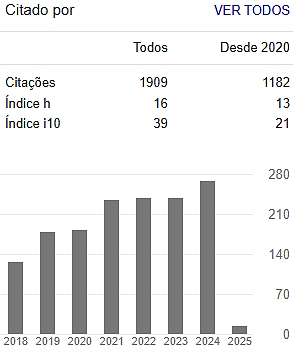DIALECTICS OF THE CONCRETE AND HISTORICAL-CRITICAL PEDAGOGY IN BRAZIL
Keywords:
Karel Kosik, Dermeval Saviani; Dialectics of Concrete; Critical PedagogiesAbstract
Educational studies in Brazil have a strong tradition based on Marxist dialectical thinkers as Gramsci, Lukács and Kosik. One of the most significant Marxist approaches in the field of pedagogical theories in Brazil is called Historical-Critical Pedagogy. The non-critical educational approaches have been defending an almost immediate identification of the school contents and methods with the pragmatic needs emerged in everyday practices. This perspective ignores the dialectics phenomena-essence and takes the pseudo-concrete as the real concrete. Historical-Critical Pedagogy takes the opposite direction and understands that the way to engage school education in a transformative social praxis is to organize the school curriculum in order to provide the conceptual tools required to take the “detour” that Kosik, based on Marx, considered necessary for human beings to grasp the essence of social reality. This paper will be an attempt to explore the points of intersection between Dialectics of Concrete and Historical-Critical Pedagogy.
Downloads
References
DUARTE, N. Education as mediation between the individual’s everyday life and the historical construction on society and culture by humankind. In: SAWCHUK, P. H.; DUARTE, N.; ELHAMMOUMI, M. Critical Perspectives on Activity: explorations across education, work and everyday life. New York, Cambdrige University Press, p. 211-237, 2006.
GRAMSCI, A. Selections from the Prison Notebooks. The Electric Book Company, London, U.K., 1999.
KOSIK, K. Dialectics of the Concrete. A Study on Problems of Man and World. Dordrecht, Netherlands. D. Reidel Publishing Company, 1976.
KIRALYFALVI, B. The Aesthetics of György Lukács. Princeton University Press. Princeton, New Jersey, USA, 1975.
LUKÁCS, G. Die Eigenart des Ästhetischen. Berlin, Germany, Hermann Luchterhand. (2 vols.), 1963.
LUKÁCS, G. Estética: la peculiaridad de lo estético (The Peculiarity of Aesthetics). Grijalbo: Barcelona, Spain, v. 1, 1966a.
LUKÁCS, G. Estética: la peculiaridad de lo estético (The Peculiarity of Aesthetics). Grijalbo: Barcelona, Spain, v. 2, 1966b.
LUKÁCS, G. Estética: la peculiaridad de lo estético (The Peculiarity of Aesthetics). Grijalbo: Barcelona, Spain, v. 3, 1967a.
LUKÁCS, G. Estética: la peculiaridad de lo estético (The Peculiarity of Aesthetics). Grijalbo: Barcelona, Spain, v. 4, 1967b.
MARX, K. Grundrisse: Foundations of the critique of political economy (1857-1858) (trans. Martin Nicolaus). New York: Penguin Books, 1973.
SAVIANI, D. Pedagogia histórico-critica: primeiras aproximações [Initial Approach to Historical-Critical Pedagogy]. Campinas: Autores Associados, 1997.
VYGOTSKY, L. S. The Psychology of Art. Cambridge, Massachusetts, MIT Press, 1971.
VYGOTSKY, L. S. The Collected Works of L. S. Vygotsky: Problems of General Psychology. New York: Plenum Press, v. 1, 1987.

